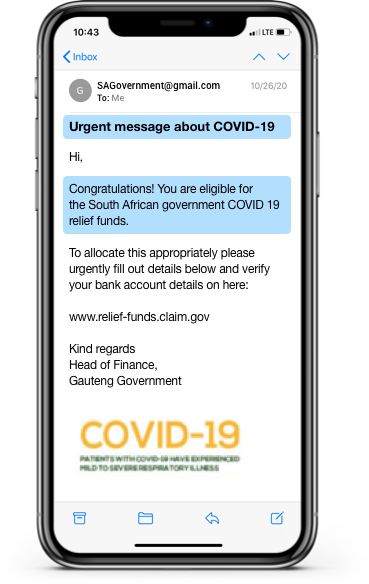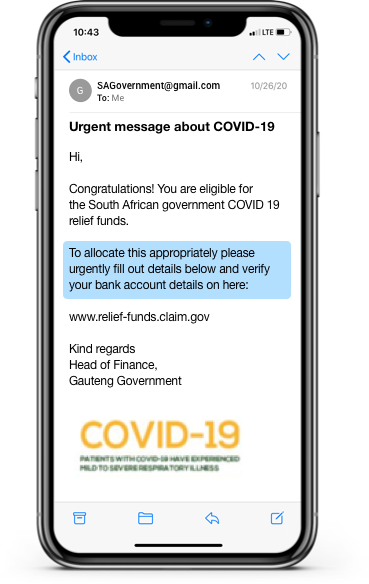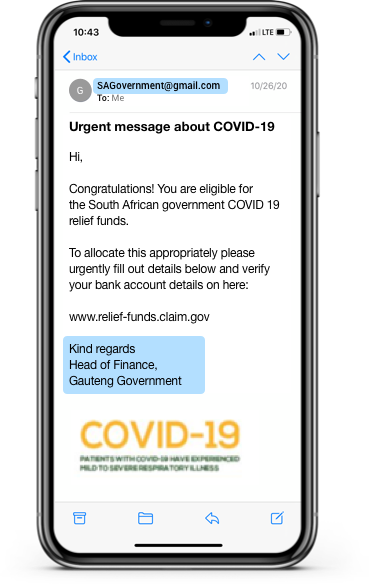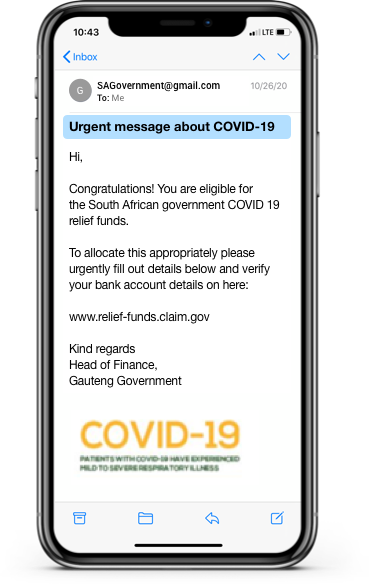FAKE Dimensions
Feeling:
Does the message trigger an emotional reaction such as curiosity, greed or fear, or does it try to pressurise you?

Action:
Does it ask you to click on a link, open an attachment or provide personal information?

Know:
Do you know the sender? Be careful as hackers often spoof a sender’s email address to make the mail look like it comes from someone you know.

Expect:
Were you expecting this email? Did you sign up for any relief programmes? Even if you know the sender, their account may have been compromised, so rather verify if you are unsure or if it is related to payments, or your financial or personal information.
